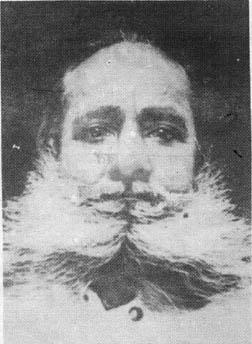Motilal Tejawat on:
[Wikipedia]
[Google]
[Amazon]
Motilal Tejawat (
Hindi
Hindi (Devanāgarī: or , ), or more precisely Modern Standard Hindi (Devanagari: ), is an Indo-Aryan language spoken chiefly in the Hindi Belt region encompassing parts of northern, central, eastern, and western India. Hindi has been de ...
: मोतीलाल तेजावत), (1885–1963) was the leader of the Eki Movement that was agitated in the 1920s in the adivasi
The Adivasi refers to inhabitants of Indian subcontinent, generally tribal people. The term is a Sanskrit word coined in the 1930s by political activists to give the tribal people an indigenous identity by claiming an indigenous origin. The term ...
-dominated border areas of present-day Rajasthan
Rajasthan (; lit. 'Land of Kings') is a state in northern India. It covers or 10.4 per cent of India's total geographical area. It is the largest Indian state by area and the seventh largest by population. It is on India's northwestern si ...
and Gujarat
Gujarat (, ) is a state along the western coast of India. Its coastline of about is the longest in the country, most of which lies on the Kathiawar peninsula. Gujarat is the fifth-largest Indian state by area, covering some ; and the ninth ...
.

Early life
Motilal Tejawat was born in Koliyari (now in Jhadol tehsil,Udaipur district
Udaipur district is one of the 33 districts of Rajasthan state in western India. The historic city of Udaipur is the administrative headquarters of the district. The district is part of the Mewar region of Rajasthan.
History
Before Udaipur d ...
, Rajasthan) in 1886. After being educated to the fifth grade, he was employed in the Jhadol ''thikana'' (in present-day Jhadol tehsil
Jhadol tehsil (Hindi:झाड़ोल तहसील) is an administrative sub-division of Udaipur district in Rajasthan, India. Jhadol tehsil was formerly called Phalasia tehsil. The tehsil consists of 283 revenue villages and 45 panchayats ...
) for some time. During his stint at Jhadol, he witnessed the oppressive behavior of the ''thakur'' and his henchmen towards the local Bhil people, which prompted him to resign his position in 1920. He then worked for a shopkeeper in Udaipur city.
Soon after obtaining new employment, Tejawat was sent by his employer to Jhadol on business, where the ''thakur'' ordered him to hand over building material belonging to Tejawat's employer; he refused to oblige, and was beaten up and imprisoned by the ''thakur'' until Tejawat's employer was able to arrange for his release. Following this experience, Tejawat gave up his job in Udaipur and devoted himself to full-time political activity.
Activism
Motilal Tejawat's immediate source of inspiration was theBijolia movement
The Bijolia movement (Hindi: बिजोलिया आंदोलन) was a peasant movement in the Bijolia ''jagir'' of the former Mewar state (in present-day Rajasthan in India) against excessive land revenue exactions. Originating in the ...
. Tejawat came in contact with pamphlets originating from the Bijolia Movement and proceeded to make copies of and distribute the pamphlets in Bhil-majority areas. Tejawat organized several meetings in Bhil villages in the erstwhile estate of Jhadol, which resulted in the formation of a committee that sought to articulate the grievances and demands of the Bhil peasantry.
Tejawat saw his movement as being part of the larger independence movement in India led by, among others, Gandhi
Mohandas Karamchand Gandhi (; ; 2 October 1869 – 30 January 1948), popularly known as Mahatma Gandhi, was an Indian lawyer, anti-colonial nationalist Quote: "... marks Gandhi as a hybrid cosmopolitan figure who transformed ... anti- ...
. He is said to have stated during speeches that once 'Gandhi raj' was established, the agitators would have to pay only one anna in the rupee (i.e., 6%) to their rulers.
Eki Movement
See Eki Movement.Position of national leaders
Gandhi did not approve of Tejawat's methods and distanced himself from Tejawat in an article in ''Young India'':I hear that a gentleman by name Motilal Pancholi hailing from Udaipur claims to be my disciple and to preach temperance and what not among the rustics of the Rajputana States. He is reported to be surrounded by an armed crowd of admirers and establishing his kingdom or some other -dom wherever he goes. He claims too, miraculous powers. He or his admirers are reported to have done some destructive work. I wish that people will once and for all understand that I have no disciples.Similarly, V.S. Pathik criticized Tejawat:
One thing, however, is certain and that is that it was beyond Moti Lal's intellectual capacity to lead the public on the right path...nobody, even a child, would ever recognize Moti Lal as having a political aim or status, nor was he connected with any political society.
Tejawat's arrest and imprisonment
Tejawat had been outlawed by the Udaipur state, which had announced a Rs-500 reward on his head. Tejawat was arrested in Khedbrahma on June 4, 1929, by police belonging to Idar State, and handed over the Mewar State. Tejawat was held in Udaipur, without trial, until his release on April 23, 1939.Post-Eki Movement activities
In December 1939, Tejawat announced to the Agra newspaper ''Sainik'' his intention to proceed to the ''adivasi'' areas of Mewar; he was barred by state authorities from doing so. However, in spite of state opposition to his activities, Tejawat continued to tour ''adivasi'' areas to advocate social reform, and was arrested again in Kotra on January 24,1946.References
{{DEFAULTSORT:Tejawat, Motilal 1885 births 1963 deaths Indian activists